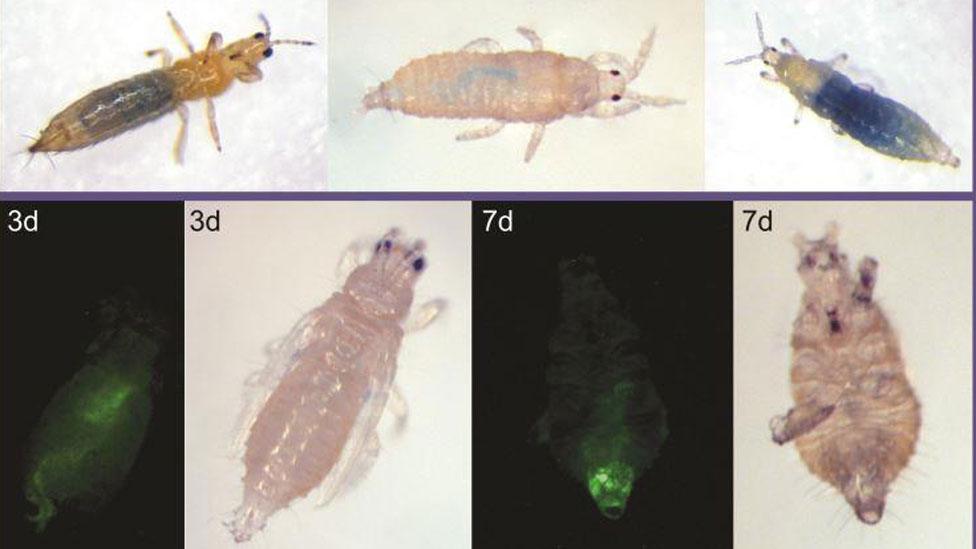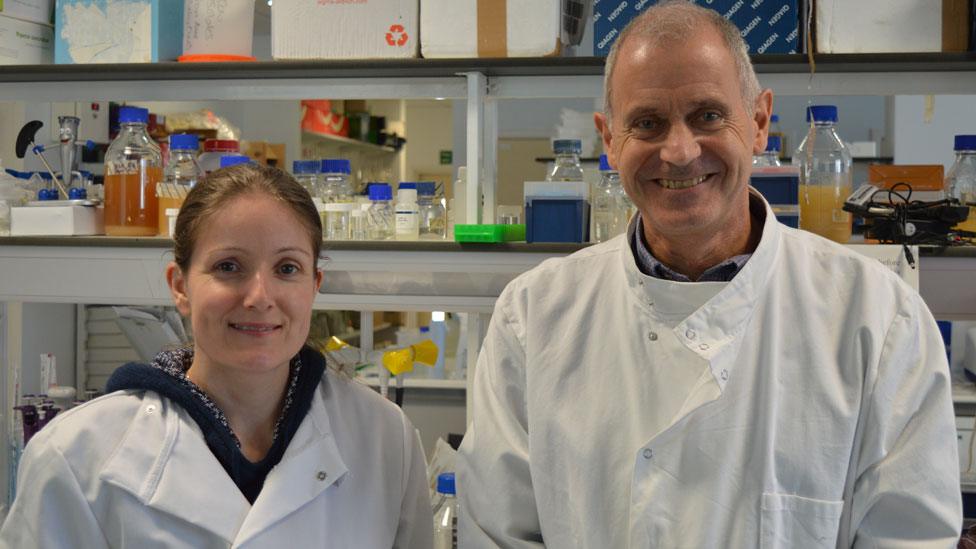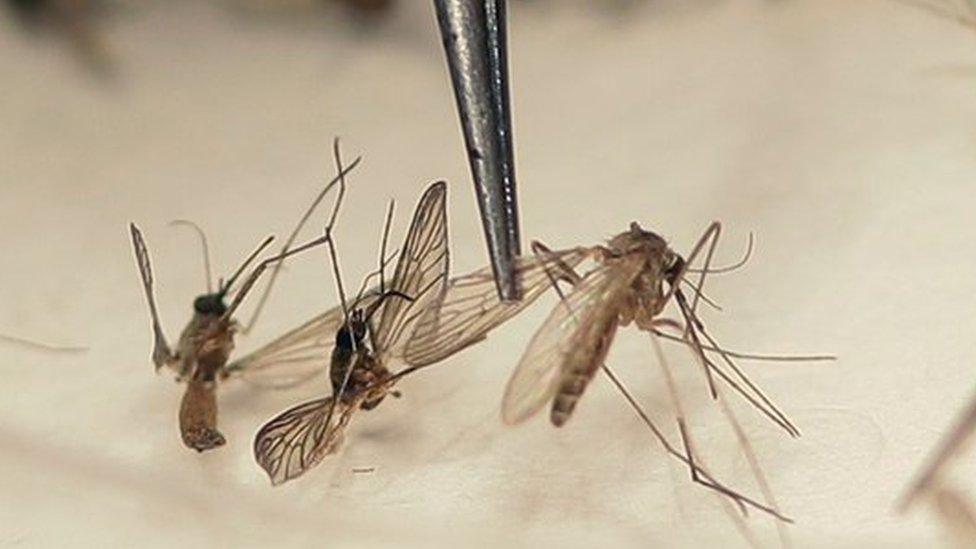Zika virus: Swansea University hopes to use gene technology
- Published

Mosquito larva being collected in Guyane
Scientists in Swansea believe genetic engineering of bacteria that live inside insects could be a key tool in fighting the Zika virus.
Research published by the Royal Society , externaluses friendly bacteria as a Trojan horse to deliver a "switch off" command to certain genes inside insects.
This can control insect populations which threaten human health or crops.
Prof Paul Dyson of Swansea University Medical School called it a "significant advance".
The technique involves so-called Ribonucleic acid interference (RNAi) which silences or "turns down" genes.

A solitary egg surrounded by friendly bacteria inside the Kissing Bug
So far it has been used on the Kissing bug - blood-sucking bugs which carry parasites that cause Chagas disease.
This affects up to eight million people in central and south America.
Known as kissing bugs as they tend to settle on people's faces at night, RNAi reduced fertility in this bug by up to 100%.

Friendly bacteria, here shown as green fluorescent protein, from the gut of the pest insect Western flower thrips
It has also been used on Western Flower Thrips, an invasive crop pest which has developed resistance to pesticides.
The scientists are exploiting a relationship which has evolved between the insects and the host bacteria - but they add a little bit of extra genetic information which can "switch off" the target insect gene so that larvae fail to develop or the adult fails to produce eggs.
'Hard work'
Prof Dyson said: "The bacteria release the information and it's absorbed by the insect gut into the haemolymph - equivalent to our blood circulatory system - and then spreads throughout the insect body.
"The information can then trigger RNAi in a specific tissue, for example preventing production of the protein necessary for viable eggs being produced in female 'kissing bugs', or preventing larvae growing in the case of thrips."
The results showed declines in fertility of up to 100% and an increase in the mortality rate of larvae of 60%, among the insects studied.

A mother and baby - with microcephaly - in Brazil
The Swansea team has already been to Brazil and hopes to use the technique with Aedes mosquitoes which carry the Zika virus to stop adult-biting females from emerging.
The infection is suspected of leading to thousands of babies being born with underdeveloped brains.
The World Health Organization has declared a global public health emergency.

Dr Miranda Whitten and Prof Paul Dyson in their Swansea University lab
Prof Dyson said RNAi offers a more targeted approach to insect control, without use of pesticides or environmental damage.
It has been looked at before but delivering it effectively has been a drawback - with injections taking time and money.
Using "friendly" bacteria instead to do the work is seen as a significant breakthrough and one which is transferable to many species.
Insect expert Dr Miranda Whitten of Swansea University's Medical School said: "The symbiotic bacteria basically do all the hard work for us - they are programmed to manufacture the RNAi molecules inside the insect's body, for as long as needed, and they do this without being detected by the insect's immune system."
There has been discussion on the effect on mosquito populations, external of eradicating those causing human harm but scientists believe native non-blood feeding varieties can fill the gap.
- Published31 August 2016

- Published16 February 2016

- Published30 January 2016